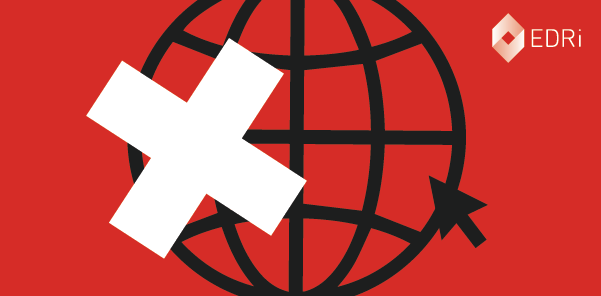Switzerland: Blocking of gambling sites – gambling with human rights
On 1 March 2017, the Swiss National Council debated the proposal to regulate online gambling, and approved it. The consequences of the law go beyond gambling regulations, since they amount to censorship, blocking of content, and restricting the free and open internet.
The law limits online and offline gambling to a fixed number of Swiss-based operators, who hold a valid licence from the Swiss authorities. Once the law is be applied, public access to foreign online gambling websites, such as online casinos and poker sites, will be blocked. Internet Service Providers (ISPs) will be obliged to block the access based on IP addresses or domain names. Further network barriers are included in proposed revisions of the copyright and the telecommunications laws.
Much of the debate on the law proposal concerned protecting the revenues of licensed Swiss casinos and lotteries, while technical facts were not given the attention they would have deserved.
Civil society has criticised the law for threatening the open internet and freedom of expression. Local NGOs Internet Society Switzerland Chapter (ISOC-CH) and Digitale Gesellschaft Switzerland explain in their factsheet the shortcomings of the law, and list the most important arguments why network blocking is detrimental for the open internet. They point out that many politicians believe that “warning pages” inserted by the local Internet Service Providers (ISPs) are the most effective part of the blocking measures. However, in reality, in a large majority of the cases, such “warning pages” are not shown to the internet users, as the “warning pages” do not work with the widely used https encryption protocol. The user only sees a confusing error message locally generated by the browser. In addition to the risk of overblocking of legal content and the general error-proneness, technology experts also challenge the IP address or domain name-based filtering because it erodes efforts to better secure the network.
Next, the law will pass the final vote in the Parliament, which is seen as a formality. After that, ISOC-CH plans, together with several other NGOs, to run a campaign to collect the 50 000 signatures required to have the law voted in a referendum.
The Swiss legislation is not the first of the sort to use net blocking against gambling. Belgium obliged the ISPs to block non-licensed providers in 2012 and went even further with criminalisation and fining the players. On 1 January 2017 gambling legislation became effective in the Czech Republic and was recently confirmed by the Czech Constitutional court, despite the constitutional complaint by 21 senators who argued that the net filtering constituted censorship, interfered with freedom of expression and information rights. The complainants still have to decide if they want to bring the case to the European Court of Justice. The complex system of net blocking in the UK goes beyond gambling and also covers, to some extent, dating, nudity, hate and hacking. It has proven to be especially prone to the effect of overblocking.
Generally, it is felt that blocking of gambling sites is, in practice, useless, but is implemented due to lobbying by domestic gambling companies. Small-scale gamblers prefer to stick to well-known national services, so blocking them from visiting sites that they never visit is obviously useless. Large-scale gamblers go wherever the percentage return is highest and will invest a small amount of money in circumventing the blocking technology, rather than losing a large amount of money by using uncompetitive, low-payout domestic services.

Bad day for the open Internet in Switzerland (06.03.2017)
https://www.isoc.ch/archives/2653
Switzerland next in line to gamble with net blocking (03.03.2017)
https://www.ip-watch.org/2017/03/03/switzerland-next-line-gamble-net-blocking/
Network blocking does not work and makes the internet insecure (only in German, 26.02.2017)
https://www.digitale-gesellschaft.ch/2017/02/26/netzsperren-funktionieren-nicht-und-machen-das-internet-unsicher/
Open Rights Group: Blocked! The personal cost of filters
https://www.blocked.org.uk/personal-stories


